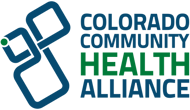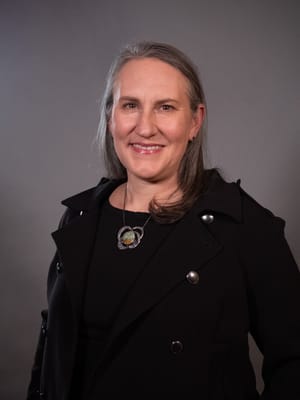Eating Recovery Center Irvine

Location Details
Highly Effective Eating Disorder Treatment in Irvine, California
Located in Irvine, California, in Orange County, ERC Irvine serves medically-stable adults and adolescents with eating disorders. This center is our second in the state and first in Southern California, led by a competent and compassionate staff in peaceful, coastal surroundings. With a warm, welcoming color scheme and design to support feelings of serenity, calmness and restoration, ERC Irvine features coastal artwork acquired from Southern California artists and group rooms named after Orange County beaches.
- Trusted by over 20,000 patients and their families
- 87% of former patients agreed that their experience at ERC was helpful
- 91% of parents of former patients would recommend ERC to others in need of services
- Specialized treatment designed by a team of experienced clinicians
Find Recovery with Evidence-Based Therapies

Lighting your way to recover from eating disorders
Take home a toolbox filled with new coping skills
Learn how to interrupt eating disorder thoughts and behaviors to create a life based on your values.
Explore new approaches to healing
Experience self-growth with individual and group therapy, nutritional counseling, art, music and yoga.
Be your authentic self — without judgement
Find acceptance in supportive spaces that respect diversity and cultural differences.
A path to healing as unique as you are
ERC Irvine is accredited by the Joint Commission, the gold standard in healthcare accreditation. This center is led by experts in the field: many of whom have actively led research supporting effective, evidence-based eating disorders treatment.
Providing daily skills groups equipping patients with numerous tools to tolerate distress and regulate emotions, ERC Irvine offers an abundance of ancillary programming that speaks to healing the whole individual. The clinical team emphasizes interpersonal relationship work, family dynamics and the importance of boundaries in recovery. Additional programming includes:
- Spirituality Group
- Yoga Therapy
- Expressive Art
- Grief & Loss Group (for adults)
“I think the thing that’s most important is that eating disorders are treatable, and there is hope. At ERC Irvine, we consider ourselves hope-holders…if patients or families have lost hope, we’ll be here for them and walk alongside them every step of the way of the recovery journey. We will hold hope for them.”
Who We Treat
-

Children & Adolescents
We can help guide you and your child on a path to long-lasting change and healing.
-

Adults
We provide eating disorder treatment and mood and anxiety disorder treatment for all genders ages 18 and older.
Conditions We Treat
-

Eating Disorders
An eating disorder is a treatable mental illness that includes a number of different symptoms, including extreme emotions, attitudes, and behaviors surrounding weight and food issues.
-

Anorexia
Anorexia nervosa is characterized by an obsessive fear of weight gain and a refusal to maintain a healthy body weight. -

Atypical Anorexia
You can’t tell if someone has an eating disorder just by looking at them. See how atypical anorexia affects people in a variety of body shapes and sizes. -

ARFID
ARFID is a lesser known eating disorder that frequently begins as early as infancy or childhood, but adults can also suffer. -

Binge Eating Disorder
Binge eating disorder is characterized by frequent overeating – at least once a week for three months – combined with a lack of control, intense feelings of distress and several other characteristic behaviors. -

Bulimia
Bulimia is characterized by patterns of bingeing and purging. -

Compulsive Overeating
Compulsive overeating can involve binge eating and weight gain, but it can also involve other behaviors. -

Diabulimia
The term diabulimia is used to describe the diagnosis of an eating disorder in an individual with type 1 diabetes. These patients intentionally misuse insulin for weight control. -

OSFED
Some eating disorders do not meet all of the diagnostic criteria for specific diagnoses like anorexia nervosa and bulimia nervosa.
Levels of Care Offered
-

Inpatient
Our Inpatient programming is designed to support adults, children and adolescents of all genders who are acutely ill and are experiencing medical and mood instability as a result of their eating disorder.
-

Residential
Within ERC Pathlight's step-down model of care, the Residential eating disorder treatment program as well as the Residential mood & anxiety treatment program offer medically stable patients a highly-structured and supportive 24-hour treatment environment.
-

Partial Hospitalization
Our Partial Hospitalization Program (PHP) offers some of the same intensity and structure of Residential mood, anxiety, and eating disorder treatment while providing additional opportunities to practice recovery outside of the controlled eating disorder treatment environment during evenings at home or in peer-supported apartment communities.
-

On-Site Intensive Outpatient Treatment
Our Intensive Outpatient program is a flexible mood, anxiety, and eating disorder treatment program that allows patients to work, go to school, or care for children during the day and sleep at home at night.
-

Virtual Intensive Outpatient - Eating Recovery At Home
ERC is removing the barriers that can keep patients with anorexia, bulimia, and other eating disorders from receiving treatment. Through telebehavioral health programming, Eating Recovery At Home (our virtual Intensive Outpatient Program) offers the same proven care as our in-person treatment centers.
Benefit From Expert Eating Disorder Care
Patients and families at ERC Irvine work closely with a compassionate team of providers. Individualized eating disorder treatment plans, evidence-based interventions, medical support, family involvement and discharge planning are fundamental to the ERC treatment approach – all of which help patients and families experience the freedom of healing and recovery. At ERC Irvine, you'll work with:
- Psychiatrists
- Primary therapists
- Registered dietitians
- Primary care physicians
- Nursing staff
- Program therapists and behavioral health counselors
Find Recovery With Our 7-Day PHP
Research shows that eating disorder patients in 5-day, weekday only programming struggle with eating disorder behaviors over the weekend. Since eating disorders don’t take the weekend off, we don’t either. We provide programming 7 days a week for individuals in residential and PHP levels of care to facilitate the best chance of recovery. Our PHP program provides supportive meals and snacks each and every day, with daily opportunities to practice new recovery skills in a safe, healing environment.

Nutrition Counseling & Education
Our nutrition approach acknowledges that eating disorders are not just about food, and that patients cannot recover from an eating disorder without food. We practice weight-inclusive eating disorder treatment that means better care for our patients in diverse bodies, and concentrate on meal planning, nutritional rehabilitation and therapy, shame resilience and extensive body image programming.
- In our PHP program, we take patients on weekend outings to local attractions – typically a snack outing partnered with an activity.
- We’ve taken patients to Tanaka Farms for a tour of the produce market and fruit-picking, pottery and other art-based activities, to Michael’s to purchase craft supplies and to the zoo
- These outings help patients become comfortable eating in public and challenge their fear foods: all while supported by team members including a registered dietitian
- Adult patients participate in a cooking experiential every other week, enabling them to prepare their own foods in a kitchen
Questions about travel and housing?
Traveling for eating disorder treatment can present unique challenges, including logistics and costs. To eliminate unnecessary stress from the admissions process, we are more than happy to answer any questions you have related to travel or housing. Please let us know how we can help you with:
- Travel arrangements
- Accommodations for caregivers
- Recommendations and referrals for local services and stores
- Coordination to and from apartments for PHP patients
Helping Young Patients Each Step of the Way
Providing families with guidance and care
At ERC Irvine, we focus on care for the entire family: both biological and chosen.
- Child and adolescent treatment is informed by family-based treatment (FBT) and emotion-focused family therapy (EFFT).
- Caregivers and friends can enjoy on-site visits with younger patients in our PHP program.
- Apartments near the treatment center provide families with accommodations and resources to engage with loved ones in PHP
Robust family programming
Collaboration with family, friends and loved ones is emphasized for all patients, providing families and support systems with education and skills development. In addition to weekly family therapy sessions, we offer:
- A weekly parent support group for parents of adolescents and young adults led by rotating clinical and nutritional staff
- Our national Virtual Family & Friends Education Series
- Ongoing free caregiver support
- Hope Orientation
Academic support for students
Designed for patients ages 12 and up, ERC Irvine has a dedicated Education Specialist working with children and adolescents on weekdays for 90 minutes, providing studying and education time. Our Education Specialist serves as a liaison between schools, parents, and patients to help customize and individualize educational needs.
Our primary goal in working with younger patients is to help them continue their academic journey without disruption, while primarily focusing on eating disorder recovery.
Testimonials
Find the right support at the right time
Reaching out for help is a critical and brave first step. Give us a call and our compassionate admissions team comprised of master’s-level clinicians will walk you through the entire admissions process with care and support. Got a question?
Let us help you with insurance
When facing a life-threatening eating disorder, you shouldn’t have to worry about how to pay for treatment. Our experienced insurance verification team does everything we can to simplify and streamline the insurance and payment process, including consistent communication about what your coverage includes and how to get the best care.
Get matched with the exact support you need.
With one conversation, our mental health professionals will help you better understand what you’re going through and what you need.
We will meet you where you are, listen to your story in a therapeutic setting, and match you with the level of support that meets your struggle.
Covered by Most Commercial Insurance Plans
Our patient access team is here to advocate for you. We can help you address financial challenges and work with you to get you the maximum coverage offered by your plan.
Frequently Asked Questions
-
How do you coordinate with outpatient providers?
One of our primary goals is to provide frequent communication touchpoints and coordinate with local outpatient community providers. At every step of the journey, we work to ensure continuity of care through regular updates on treatment progress, changes in treatment planning and discharge instructions.
-
What support do you offer once treatment ends?
Extensive aftercare planning conducted by an Aftercare Coordinator helps ensure you have a “plan of action” for continuity of care and maintaining recovery progress: pre-arranged appointments set with an outpatient team experienced in the treatment of eating disorders.
Our clinician-led team of Community Outreach Liaisons, provide ongoing support for patients who have transitioned to outpatient care through alumni events, free support groups, social recovery communities and resources for patients and caregivers.
-
What are the exact ages you treat?
ERC Irvine treats adolescents (ages 12-17) and adults with anorexia, bulimia, binge eating disorder, ARFID and other unspecified eating disorders and general body image disturbances.
-
What does your intensive outpatient program (IOP) include?
Our three-day-a-week IOP includes one meal per IOP day, process groups and skill-building groups with an emphasis on Acceptance Commitment Therapy (ACT), Dialectical Behavior Therapy (DBT) and Radically Open DBT (RO-DBT).

Find Virtual Eating Disorder Treatment in California
We also offer virtual eating disorder treatment for individuals in California through our Eating Recovery At Home program. Individuals in all cities and towns across California, including the cities listed below, are eligible to participate in Eating Recovery At Home.
- Newport Beach
- Costa Mesa
- Anaheim
- Lake Forest
- San Diego
- Long Beach
- Laguna Woods
- Orange
- Riverside
- Tustin
- Glendale
- Los Angeles
- Mission Viejo
- Santa Ana
- San Bernardino
Hide Last Child Layout Div
#who-we-treat, #conditions, #levels-of-care javascript
Show Who We Treat, Conditions, Levels of Care





















